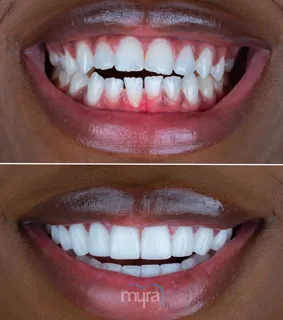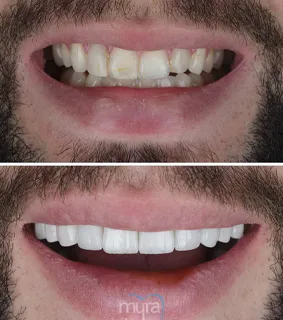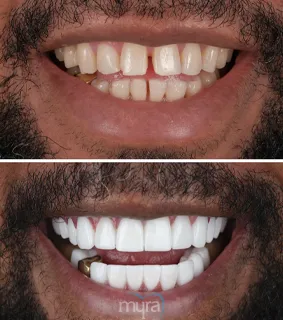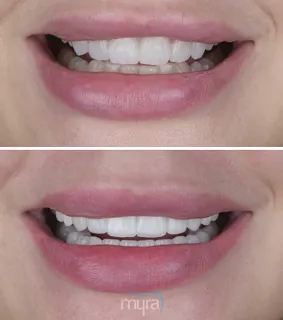Dental implants are tiny titanium or other biocompatible synthetic tooth roots surgically implanted properly into one’s jawbone, anchoring prosthetic teeth. Dental implant is determined to be successful once blended with the patient's jawbone as well as able to hold firmly one or several artificial teeth, in a manner in which the patient is contented. Here are seven things to ponder in obtaining dental implants:
1. Smoking
Smoking is the act of breathing in smoke generated when lighting tobacco and other materials. Cigarette is the most recognizable type of its practice. However, tobacco and other forms, too, are smoked in pipes, cigars, and hookahs, and it is widely accepted as a valid method of drug consumption. Tobacco usage is associated with numerous negative health outcomes namely cancer, respiratory illness, and cardiovascular disease.
Smoking is linked to a wide variety of unfavorable health outcomes. Lung cancer is one of the outcomes that is affected. Approximately 85% of all occurrences of lung cancer are attributed to smoking. Additionally, smoking has been associated with an increased risk of malignancies of the mouth, throat, esophagus, pancreas, kidney, bladder, cervix, and stomach. It has been linked to a rise in cardiovascular problems like strokes and heart attacks. Moreover, chronic bronchitis and emphysema are just two of the many respiratory diseases that are directly linked to smoking. Diabetes is made more likely by smoking as well. Further, it promotes premature wrinkles, foul breath, and tooth discoloration. Even one’s ability to taste and smell is negatively impacted.
There are multiple ways in which smoking potentially reduces the effectiveness of dental implants. To start, smoking diminishes blood flow towards the gums and mouth which hinders the fusion of the said dental implant to one’s jawbone. A process termed as osseointegration takes place for the implant to work and hold a new tooth in place.
Second, smoking hinders healing of such implants because it reduces the blood supply to the jawbone and gums. It increases the likelihood of implant failure or necessitates further procedures to address complications. Last but not the least, smoking raises the odds of getting gum disease which in turn leads to the loss of primary teeth and makes dental implants more challenging to put on.
Anyone considering dental implants needs to give up smoking prior to and after the procedure for the best results and overall health. Moreover, it is essential to practice proper oral hygiene, follow the dentist's recommendations in caring for the dental implant, refrain from chewing down hard objects, and protect the teeth with a mouth guard.
2. Bone Density
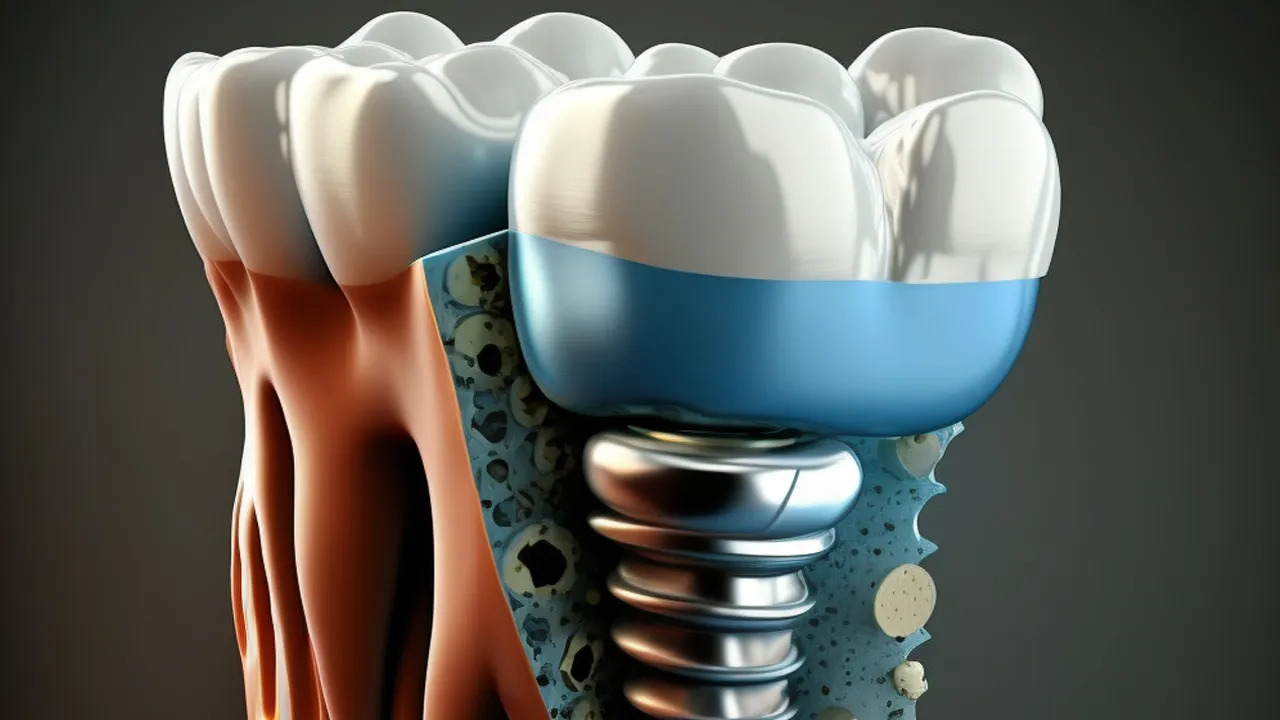
Bone density indicates the total quantity of bone mineral content, including calcium and phosphorus, in a certain area of bone. It is a common way to measure bone health and plays a major role in predicting the likelihood of fractures.
Fractures are just one of the many complications that arise from osteoporosis, a condition characterized by low bone density. There is a higher risk of fractures inside the hip, spine, and wrist as a result of insufficient bone density. There is a lot of discomfort associated with these injuries, and recovery time is extensive. Low bone density increases the chance of short stature due to the spine’s deterioration. Constant discomfort from a bone fracture or other injury might impede daily life. Falls are more likely to occur in those with low bone density because of the difficulty in moving around and maintaining balance. Osteoporosis lowers a person’s quality of life due to its effects on physical mobility and the prevalence of chronic pain.
Dental implant’s success is influenced by bone’s density for the reason that it plays a part in osseointegration (wherein such implant merges with one’s jawbone). The surrounding bone must develop to a thickness and strength sufficient to sustain strength sufficient to sustain the implant and ensure its optimal functioning, in these times.
The fusion of such an implant to the jawbone is more challenging in patients with low bone density, raising the probability of implant failure. These conditions necessitate either additional operations to increase jawbone density or the use of dental prosthetics like dentures or dental bridges.
Overall, a person’s bone density needs to be high enough to maximize the likelihood of success using dental implants and guarantee the appropriate functioning of the implants. The success rate of dental implants is sometimes increased by practicing proper oral hygiene and getting adequate calcium and vitamin D.
3. Timing of the Surgery
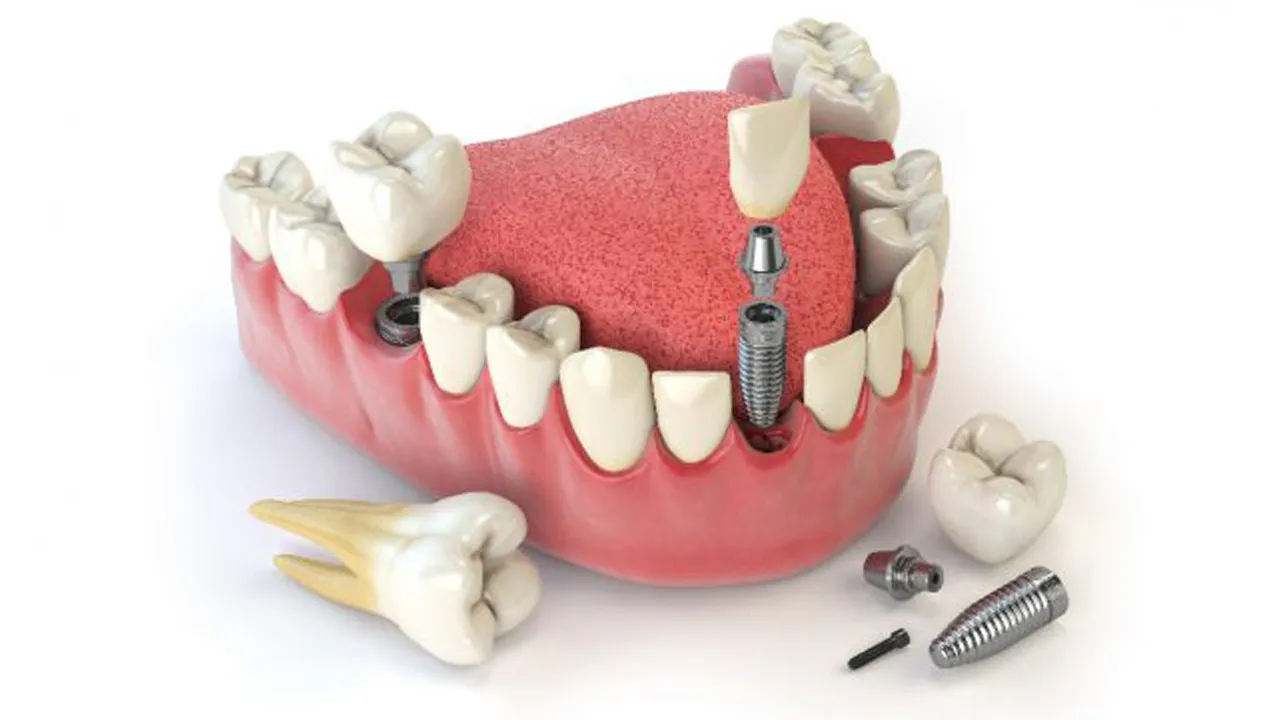
Dental implant surgery is done at different times for different patients based on their overall health, the state of their jawbone, and the implant type being utilized.
Dental implant surgery is normally performed in two phases. Surgical implant installation into the jawbone is the first stage. There is a need for a tiny incision to be made in the gum tissue, thus it is usually done under local anesthesia. The gum tissue is sutured back into place, and the healing process of osseointegration commences when the implant has been positioned. It takes a long time to finish the process, sometimes a few months.
The dental crown, bridge, or other treatment is properly attached to the implant during the second stage of surgery. The step mostly is taken when the implant has healed completely into the jaw’s bone and even the gum tissue had already mended around it. The optimal time for dental implant operation is variable and is determined by the needs of the individual patient and their unique set of circumstances.
Pain and swelling are to be expected during the initial phase of the said surgery, when the implant is positioned in the jawbone. Minor pain and swelling are to be expected after the second phase of surgery, whenever the restoration is secured to the implant. It is common practice to treat them using over-the-counter pain relievers and a cold compress. It's crucial to adhere strictly to the dentist's post-op care instructions to lessen the possibility of discomfort in the aftermath of dental implant surgery.
Dental implant success rates are not significantly affected by when the surgery is performed. However, the effectiveness of dental implants depends on a number of circumstances, including the patient's general health and the state of their jawbone at the time of operation.
As an example, the implant has a harder time fusing with the jawbone and functioning normally if the patient has poor oral health or a fragile jawbone. It is best to put off the procedure until the patient's dental wellness has improved or the jaw has strengthened before proceeding. Meanwhile, dental implants have a better probability of success if the patient has healthy gums and a robust jawbone. Thus, the optimal time for surgery is less crucial.
Dental implant success rates are higher for people who are both physically well and have a healthy jawbone. Keeping up a regular routine of good oral hygiene, eating well, and visiting the dentist as recommended is essential for success. Surgical timing is important, but it isn't the only aspect that matters.
4. Dietary Adherence
Adherence to a diet is the practice of sticking to a prescribed eating regimen. Dietary adherence, when discussing dental implant surgery, is the practice of adhering to a predetermined diet plan prior to and in the aftermath of the procedure to facilitate healing and increase the success rate of the implant.
Dental implant surgery is affected in a number of ways by the patient's commitment to the prescribed diet. Deficiencies in protein and vitamins, for example, weaken the jaw and make it harder for the implant to fuse. Healing is aided and the success rate of dental implants is increased when patients consume a well-balanced diet high in protein and other essential elements. A high-sugar diet, for instance, raises the likelihood of cavities and gum disease, both of which complicate the process of getting dental implants. Additionally, successful surgical outcomes are associated with the patient's intake of essential minerals, like vitamin D and calcium, which aid in the maintenance of strong, healthy bones. It is indeed vital to eat well to speed up the healing process if an individual recently had dental implant surgery.
5. Oral hygiene
Oral hygiene is a routine care and attention paid to one’s oral cavity, which helps to halt issues like dental caries, gum diseases, and foul breath. Inflamed gums induced by plaque and germ accumulation around the implant leads to gum detachment to the implant, which in turn promotes bone loss and eventual implant failure. Neglecting dental hygiene causes damage to neighboring teeth, besides bad odor and cavities. Dental implant surgery, as with any surgical procedure, places a high value on good oral hygiene as a means of preserving the patient’s holistic health and well-being.
Good dental care includes using fluoride-containing toothpaste to brush twice daily, flossing once daily to remove plaque and food debris from between teeth and along the gumline, and rinsing with an antimicrobial mouthwash once daily to destroy pathogens and freshen breath. Moreover, it is essential to have regular dental examinations and avoid cigarette use. Maintaining good oral hygiene is important for anyone with a dental implant since it is trickier to clean the area located close to and around the implant. Consult a dentist without delay if difficulties with dental implant or oral hygiene routine is experienced.
Maintaining a high standard of oral hygiene prior to, during, and after dental implant surgery is indeed essential to the procedure’s effectiveness and to minimizing the likelihood of infection and other problems. The effectiveness of dental implant surgery and long-term oral health are both aided by the patient’s diligent attention to maintaining a clean mouth and healthy teeth and gums.
6. Systemic Health

The term "systemic health" is used to describe the overall state of an individual's bodily and organ systems, single organ or tissue. The success of a dental implant is dependent on the patient's general health, so it is vital to take that into consideration.
Patients with compromised immune systems or those who suffer from long-term diseases like diabetes or cardiovascular disease are more likely to experience difficulties after dental implant surgery. Infection, prolonged recovery time, and implant failure are just some of the potential issues.
Patients seeking dental implants should be upfront with their dentist about any preexisting health concerns they have, as these conditions needs to be addressed both before and after the implant treatment for optimal results. Systemic health issues prevent a prospect for dental implants from being a good candidate. Alternative treatments are considered in such circumstances.
Patients with systemic health issues improve their chances of a successful dental implant procedure by following some guidelines. All dental implants need to have good care and maintenance to last. Consistently taking prescribed drugs is essential for patients with chronic health conditions. Quitting smoking is vital for smokers because it slows the recovery process by decreasing blood supply to the gums. Furthermore, it is crucial to find a dentist who is both competent and experienced in implant surgery. The success rate and likelihood of avoiding issues are both improved by the expertise of a dentist.
7. Dentist Expertise
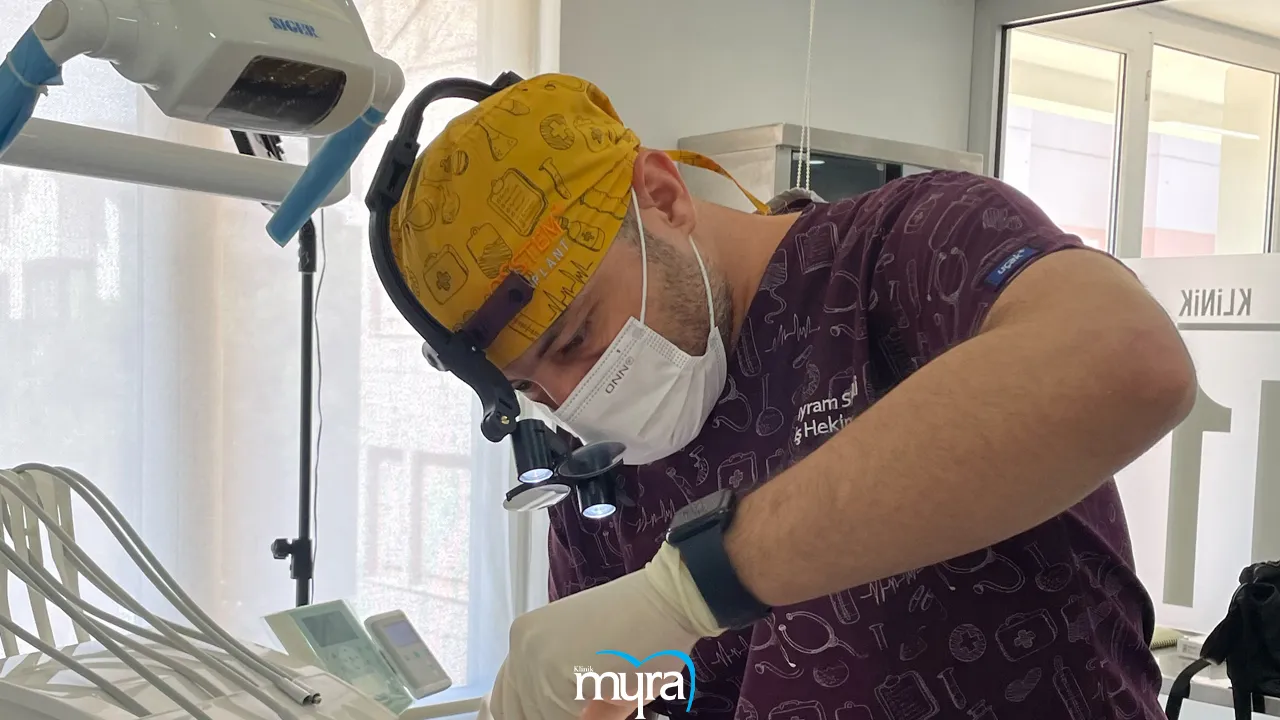
A dentist who has received advanced education in implant dentistry is the best choice for having implants placed and restored. They need to be proficient in surgical methods and the use of specialist instruments, as well as having a solid grasp of the anatomy of the mouth and jaw. Each patient's treatment plan is created specifically for their condition and desired outcomes.
Choosing a dentist who is well-versed in implant dentistry is important, as the success of the operation relies on the implants being placed and restored correctly. The chances of a successful implant are reduced and the risk is minimized when performed by a trained dentist.
Improper implant insertion is more likely to occur if a dentist with insufficient experience is chosen. It causes a wide variety of adverse effects, such as discomfort or soreness, infection, nerve damage, sinus issues, and implant failure. It is imperative to seek out specialists in the field if problems arise with a dental implant that was placed by a poorly trained dentist. The likelihood of the implant working out increases when it is inserted and recovered correctly.
What are the things to know before getting a dental implant?
There are few important things to know prior to getting a dental implant. Among these things is the fact that dental implants last a lifetime and never needed to be changed. They last for decades with regular maintenance, but they are more expensive than alternatives like dentures and bridges and are rarely covered by insurance. One more thing is that the method necessitates surgical intervention. A surgeon first creates an opening in the gum tissue in order to place a dental implant into the jawbone. Typically, local anesthetic is employed, though sometimes intravenous sedative or general anesthesia is necessary for the procedure. It usually takes a few months after the said surgery for the implant to become fully integrated with the jawbone. The implant is covered with a temporary crown or left uncovered, during the healing process. Moreover, it necessitates a serious time and effort investment. The entire procedure, from beginning to end, takes many months and involves numerous visits to the dentist.
Furthermore, bone density is very essential in achieving successful dental implants. There’s a needed sufficient bone density in one’s jaw for them to adhere. Bone graft is performed in order to strengthen the area prior to the said implant’s placement, in the event that the jawbone is excessively weak or thin. It is significant to note that such implant’s success depends on constant care and upkeep. It entails routine checkups and everyday care, such as brushing and flossing properly the implant area. Finally, not all people benefit from dental implants. Dental implant candidacy is affected by factors such as the client’s holistic health, jawbone condition, and presence of gum issues. Dental implants are an appropriate treatment choice for some patients, but it is vital to take note of the factors to consider before getting dental implants. and discuss everything with a very skilled and experienced implant dentist.
How to take care of Dental Implant?
Dental implants are relatively easy to take care of, however, not all people know the proper way of doing it. That leads to a question, How Do I Take Care of My Dental Implants?. Here are some suggestions for maintaining implanted teeth:
- Use a night guard: A night guard is not a good option if the patient is a nighttime teeth grinder, when it comes to protecting dental implants.
- Attend regular dental check-ups: Dental checkups are necessary to maintain the implant's continued health and functionality. The dentist is able to spot abnormalities early on and treat them before they worsen.
- Practice good oral hygiene: Keep the area around the implant clean by brushing and flossing twice a day.
- Avoid hard or sticky foods: Consuming foods that are too hard or too sticky loosen or even break the implant. Either avoid these foods entirely or consume them in very tiny portions.
- Use an antimicrobial mouthwash: Plaque and infection are prevented with the use of an antibacterial mouthwash.
- Avoid smoking: Smoking slows the healing process by decreasing blood supply to the gums. Put an end to smoking immediately for best results.
- Use a soft-bristled toothbrush: Use a toothbrush with very soft bristles, to avoid damaging the implant or the gum tissue around it.
What are the do's and don'ts of dental implant?
Some dos and don’ts of dental implant are as follows:
Dos:
- Do practice good oral hygiene: Plaque and germs are removed from the area around the implant by regularly brushing and flossing the teeth.
- Do use an antimicrobial mouthwash: The risk of infection surrounding the implant is mitigated by using an antibacterial mouthwash.
- Do attend regular dental check-ups: Checkups at the dentist are very vital to ensure that such implant is doing its job and to treat any problems that may occur.
- Do follow the dentist's instructions: Follow the doctor's recommendations especially the do's and don'ts for taking care of your dental implants, including any advice for food or medication.
Don'ts:
- Do not chew hard or sticky foods: Eating anything too hard or sticky loosens or cracks the implant.
- Do not smoke: The healing process is delayed by smoking, which decreases blood flow to the gums. Quitting smoking is essential for the long-term health of the implant.
- Do not neglect oral hygiene: Infection and implant failure are both made more likely by improper oral hygiene practices. Maintaining healthy teeth and gums requires consistent brushing and flossing.
- Do not ignore problems: Kindly contact the dentist immediately if any pain or discomfort related to the dental implants is felt. Ignoring issues just makes matters worse.
What medication should be avoided for Dental Implant?
It really is important to consult with an oral surgeon or dentist to establish which medications are avoided in undergoing dental implant procedure. They determine the medications that can affect your dental implants prior or following the surgery.
Nonsteroidal anti-inflammatory drugs (NSAIDs), anticoagulants, steroids, and chemotherapy drugs are only some examples of the types of medications that are prohibited before or after dental implant surgery. The risk of bleeding increases when patients take blood-thinning medications or nonsteroidal anti-inflammatory drugs (NSAIDs) like aspirin, ibuprofen, or naproxen, or anticoagulants like heparin or warfarin. These drugs are avoided for a set period of time prior to and following such surgery. The risk of bleeding during the said dental implant surgery is reduced if these are modified or discontinued beforehand. In addition, immunosuppression brought on by chemotherapy and steroids leads to implant failure. Consultation with a dentist or oral surgeon is recommended if steroid use is anticipated. Dental implant surgery is postponed if the patient is undergoing chemotherapy.
How long does it take to recover from a Single Tooth Dental Implant?
Individuals have different needs and timelines for healing after single tooth dental implant surgery. Some swelling, bruising, and discomfort in the immediate post-operative period is to be expected. Over-the-counter pain relievers are commonly used to treat discomfort.
Taking care of the implant site following surgery requires avoiding specific meals and activities and using prescribed drugs as directed by the dentist.
It usually takes a week or two for swelling and bruises to go away, but most individuals go back to work and other regular activities within a few days. The implant and the bone need time to fuse together, thus the crown is not placed for a while. The full procedure for a single tooth dental implant takes several months depending on the individual patient's circumstances.
Can an unsuccessful Dental Implant be fixed?
Yes, it is possible to fix an unsuccessful dental implant. It is important to determine why the implant failed so that appropriate measures are taken to correct the problem. Infection at the implant site, injury to adjacent teeth/bone, faulty implant placement, and poor healing of the implant site are all typical causes of implant failure.
The infected tissue needs to be removed and antibiotics need to be administered to the implant site if an infection caused the implant to fail. Implant failure caused by damage to adjacent teeth or bone necessitates correcting such damage before a new implant is attached. The old implant is removed and a new one is inserted if it was either placed incorrectly or did not heal properly.
Ultimately, the best way to deal with a failed dental implant is to talk to experts or oral surgeon about the options.
Does a dental implant need surgery?
Yes, a dental implant is a substitute for a tooth's root that is surgically placed into the jawbone. The implant serves as an anchor for a prosthetic tooth, such as a crown, bridge, or denture, which serves to restore the aesthetics and function of the smile.
The operation is often conducted by a dentist or oral surgeon and is conducted under local anesthetic or intravenous sedation. It takes around an hour to two hours to install an implant, and then the patient waits many months before getting their new tooth.
Dental implant surgery, in most cases, is a safe and successful approach to restore lost teeth; nevertheless, like with any surgical operation, complications do arise. Infection, nerve injury, and sinus problems are all possibilities. The dentist or oral surgeon is expected to inform the patient of these potential side effects and take precautions to reduce them.






